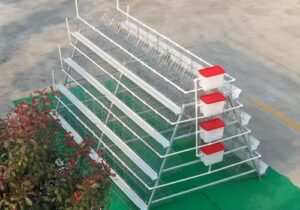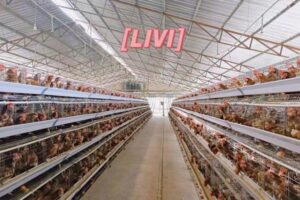Battery cage system for layer have become increasingly popular in poultry farming due to their efficiency and productivity. For those considering starting or expanding a poultry farm in Nigeria, understanding the costs and benefits of these systems is crucial. This article delves into the specifics of setting up a battery cage system for layers, particularly for a farm with a capacity of 10,000 chickens.
Importance of Battery Cage Systems
Battery cage systems offer numerous advantages over traditional poultry farming methods, particularly for layer chickens. These systems are designed to house a large number of chickens in a relatively small space, which maximizes efficiency and productivity. Here are some key benefits:
-
Enhanced Production: Battery cages are design to improve egg production by providing a stable environment for the layers.
-
Improved Health and Hygiene: The cages reduce the risk of disease transmission by minimizing contact between chickens and their waste.
-
Ease of Management: With battery cages, feeding, cleaning, and egg collection are more streamlined, reducing labor costs and time.

Costs of Battery Cage Systems for 10,000 Chickens
When planning to set up a battery cage system for a 10,000 chicken farm in Nigeria, understanding the cost implications is vital. The prices of battery cages for layers in Nigeria can vary significantly based on several factors including material quality, design, and supplier.
-
Initial Investment: The initial cost of purchasing battery cages is one of the most significant expenses. As of 2024, the prices of battery cages for layers in Nigeria range from $100 to $200 per unit, depending on the quality and features.
-
Installation Costs: Besides purchasing the cages, you need to consider the installation costs which can range from ₦20,000 to ₦50,000 for a 10,000 chicken farm.
-
Maintenance Costs: Regular maintenance is necessary to ensure the longevity of the cages. This includes cleaning, repairs, and replacements, which can amount to ₦100,000 to ₦300,000 annually.
Factors Influencing the Price of Battery Cages
Several factors can influence the prices of battery cages for layers in Nigeria:
-
Material Quality: Higher quality materials such as galvanized steel tend to be more expensive but offer better durability and longevity.
-
Design and Features: Cages with additional features like automated feeding and watering systems will cost more.
-
Supplier and Location: Prices can also vary based on the supplier and the location of the farm. Importing cages from outside Nigeria may incur additional shipping and customs costs.

How to Choose the Best Battery Cage System?
Selecting the right battery cage system for your farm involves considering several aspects:
-
Capacity and Size: Ensure the cages can accommodate the number of chickens you intend to house.
-
Durability: Invest in high-quality materials that can withstand the Nigerian climate.
-
Ease of Management: Opt for designs that simplify feeding, cleaning, and egg collection processes.
Successful Implementation of Battery Cage Systems
To illustrate the effectiveness of battery cage systems, consider the case of a farm in Lagos that transitioned from traditional farming methods to a battery cage system. The farm reported a 30% increase in egg production and a significant reduction in mortality rates within the first year. The initial investment was recouped within two years due to the increased productivity and reduced labor costs.
Conclusion
A battery cage system for layers is a worthwhile investment for poultry farmers in Nigeria, particularly for those with a large capacity like a 10,000 chicken farm. While the initial costs can be substantial, the long-term benefits in terms of productivity, health, and ease of management far outweigh these expenses. By carefully selecting quality materials and designs, farmers can ensure a profitable and sustainable poultry farming operation.

